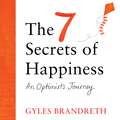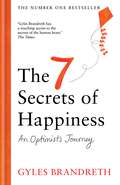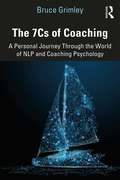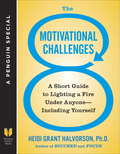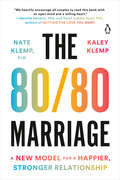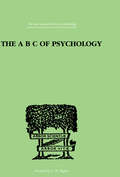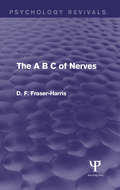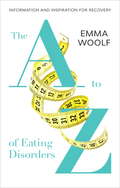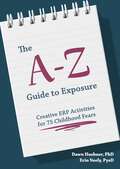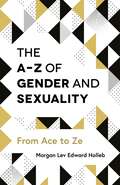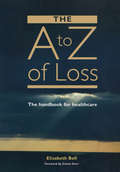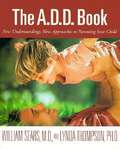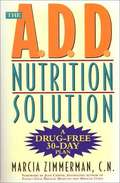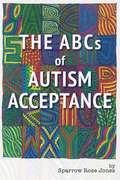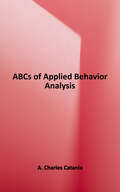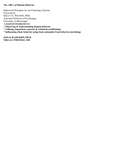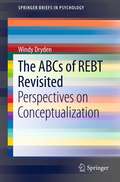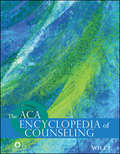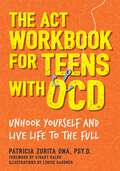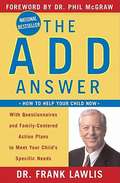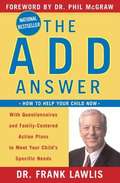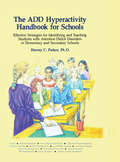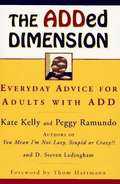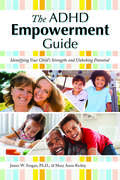- Table View
- List View
The 7 Secrets of Happiness: An Optimist's Journey
by Gyles BrandrethILLUSTRATED EDITION OF THE 7 SECRETS OF HAPPINESSTen years on, Gyles Brandreth has learnt yet more about happiness... featuring a new introduction and charming illustrations, this little book attempts to answer a big question: How can we be happy?'Marvellous, brilliant, wonderful, best thing I've ever heard, transformational...'That was the response from a total stranger when Gyles Brandreth delivered the Happiness Lecture at Birmingham University. Someone else in the thousand-strong audience tweeted: 'The 7 Secrets of Happiness are amazing. Thank you Gyles Brandreth, wherever you are.'Well, Gyles Brandreth is here now with those 7 Secrets of Happiness. The secrets are simple rules, easy to remember, but challenging to achieve. Gyles Brandreth found them when he set out on a journey looking for happiness and ended up in the psychiatrist's chair - with Dr Anthony Clare.What is happiness? Who gets to be happy? And how?These are the big questions that Gyles Brandreth aims to answer in this little book. Research shows that happy people live up to ten years longer than unhappy people. This is a book that won't simply enhance your life: it will extend it.
The 7 Secrets of Happiness: An Optimist's Journey
by Gyles BrandrethILLUSTRATED EDITION OF THE 7 SECRETS OF HAPPINESSTen years on, Gyles Brandreth has learnt yet more about happiness... featuring a new introduction and charming illustrations, this little book attempts to answer a big question: How can we be happy?'Marvellous, brilliant, wonderful, best thing I've ever heard, transformational...'That was the response from a total stranger when Gyles Brandreth delivered the Happiness Lecture at Birmingham University. Someone else in the thousand-strong audience tweeted: 'The 7 Secrets of Happiness are amazing. Thank you Gyles Brandreth, wherever you are.'Well, Gyles Brandreth is here now with those 7 Secrets of Happiness. The secrets are simple rules, easy to remember, but challenging to achieve. Gyles Brandreth found them when he set out on a journey looking for happiness and ended up in the psychiatrist's chair - with Dr Anthony Clare.What is happiness? Who gets to be happy? And how?These are the big questions that Gyles Brandreth aims to answer in this little book. Research shows that happy people live up to ten years longer than unhappy people. This is a book that won't simply enhance your life: it will extend it.
The 7Cs of Coaching: A Personal Journey Through the World of NLP and Coaching Psychology
by Bruce GrimleyIn The 7Cs of Coaching, Bruce Grimley expertly explains neuro-linguistic programming (NLP) to the advanced coach and counsellor by asking a simple question: 'What is NLP?'. Inviting us on his personal journey, he provides the reader in this book with an insight as to how he coaches using his own NLP model as well as exploring the complexity of NLP as a practice and why it tends to polarise opinion in today’s coaching landscape. Grimley insists that if the NLP paradigm is to find credible traction in the modern world, it needs to test its claims in the same way as other academic disciplines; based on his own research, this book does just that. Incorporating contemporary psychological understanding and neuroscientific research throughout, it provides a complete NLP model, outlining specific steps for the reader to follow in order to achieve excellence in coaching. It includes case studies, exercises and reflective questions which will encourage both novice and advanced coaches to explore the benefits of NLP, understanding and taking into account emotions and the unconscious mind in their practice. By analysing the NLP landscape, this book also addresses many issues which are shared by the broader coaching community such as differentiation from counselling, professional status and lack of a reliable empirical evidence base. Ground-breaking and thought-provoking, this book offers a modern examination of NLP. Highlighting why NLP is still useful and popular, and exploring why it fills a gap in the market place for effective coaching, this book will be essential reading for all coaches in practice and training, coach supervisors and counsellors with an interest in coaching techniques.
The 8 Motivational Challenges
by Heidi Grant HalvorsonFrom the author of Succeed and Focus, a quick and easy guide to motivating anyone – including yourself. There is no one-size-fits-all way to get people motivated. Anyone who tells you that you should do X to get the most out of your employees, your students, or even yourself, isn’t telling you that – at best – X only works for some of the people, some of the time. In this short guide Heidi Grant Halvorson identifies the eight different types of underperformers and draws on research from her books Succeed and Focus to offer tailored strategies for lighting a fire under each one. Underperformers range from the truly achievement challenged to those who are actually performing at a high level but could perform even better if someone knew the right way to motivate them. Halvorson explains how we can understand each profile in terms of the mindset and motivational focus they bring to their work, in addition to the confidence with which they approach it. For each profile, each she lays out specific, evidence-based strategies for increasing effectiveness and engagement. Succinct and focused, this prescriptive guide will appeal to readers of What Successful People Do Before Breakfast and 9 Things Successful People Do Differently.
The 80/80 Marriage: A New Model for a Happier, Stronger Relationship
by Nate Klemp Kaley KlempAn accessible, transformative guide for couples seeking greater love, connection, and intimacy in our modern worldNate and Kaley Klemp were both successful in their careers, consulting for high-powered companies around the world. Their work as mindfulness and leadership experts, however, often fell to the wayside when they came home in the evening, only to end up fighting about fairness in their marriage. They believed in a model where each partner contributed equally and fairness ruled, but, in reality, they were finding that balance near impossible to achieve. From this frustration, they developed the idea of the 80/80 marriage, a new model for balancing career, family, and love. The 80/80 Marriage pushes couples beyond the limited idea of "fairness" toward a new model grounded on radical generosity and shared success, one that calls for each partner to contribute 80 percent to build the strongest possible relationship. Drawing from more than one hundred interviews with couples from all walks of life, stories from business and pop culture, scientific studies, and ancient philosophical insights, husband-and-wife team Nate and Kaley Klemp pinpoint exactly what's not working in modern marriage. Their 80/80 model of marriage provides practical, powerful solutions to transform your relationship and open up space for greater love and connection.
The A B C Of Psychology (International Library Of Psychology Ser.)
by Ogden, C KFirst published in 1999. Routledge is an imprint of Taylor & Francis, an informa company.
The A B C of Nerves (Psychology Revivals)
by D.F. Fraser-HarrisOriginally published in 1928, the preface reads: "It is almost impossible to distinguish between what is ‘elementary’ and what is ‘advanced’ in regard to the nervous system. The constitution and functions of that system are so little matters of common knowledge that it would be safe to assume that practically nothing of its physiology is known to the ordinary reader. The selection of what is necessary to be known and likely to be comprehended by readers who have no previous knowledge of anatomy and physiology is, therefore, no easy task. It is certain that in the opinion of some authorities much has been omitted that should have been included; one can but say in self-defence that to have included more than is here considered would have exceeded the limits of a treatise whose title is the A B C." Today it can be read and enjoyed in its historical context.
The A to Z of Eating Disorders
by Emma WoolfAre you worried about your food intake? Do you weigh yourself most days and feel guilty if you gain half a pound? Do strict rules dominate your mealtimes and life, just so you can feel more in control?The A to Z of Eating Disorders is a road map for anyone who wants a way out of the bewildering world of disordered eating and body-image anxiety.From anorexia, bingeing and clean eating, to social media, yo-yo dieting and size zero, this book explores these complex conditions from a range of angles, offering valuable insights and hope.In this inspiring, impeccably researched book, renowned writer and broadcaster Emma Woolf says, 'Eating disorders cause untold misery and can affect anyone at any time of life. As someone who has lived through anorexia and recovery, I receive emails every day from those desperate for guidance. The A to Z of Eating Disorders helps to demystify disordered eating and sets you back on the path to a happy, healthy relationship with food.'Praise for The A to Z of Eating Disorders'Detailed but to the point, Emma Woolf provides insight, wisdom and practical solutions: The A to Z of Eating Disorders is a must-have for anyone with or caring for someone with an eating disorder.' Renee McGregor, performance and clinical dietitianI've just been reading your book again for the second time this week, aka The A-Z of Eating Disorders. It's truly an amazing book and its purpose is amazing and I'm just so happy someone has confronted these topics and can educate others because anorexia is such a complex illness which can be hard for 'outsiders' to understand.Thank you,Ellie, a reader
The A to Z of Eating Disorders
by Emma WoolfAre you worried about your food intake? Do you weigh yourself most days and feel guilty if you gain half a pound? Do strict rules dominate your mealtimes and life, just so you can feel more in control?The A to Z of Eating Disorders is a road map for anyone who wants a way out of the bewildering world of disordered eating and body-image anxiety.From anorexia, bingeing and clean eating, to social media, yo-yo dieting and size zero, this book explores these complex conditions from a range of angles, offering valuable insights and hope.In this inspiring, impeccably researched book, renowned writer and broadcaster Emma Woolf says, 'Eating disorders cause untold misery and can affect anyone at any time of life. As someone who has lived through anorexia and recovery, I receive emails every day from those desperate for guidance. The A to Z of Eating Disorders helps to demystify disordered eating and sets you back on the path to a happy, healthy relationship with food.'Praise for The A to Z of Eating Disorders'Detailed but to the point, Emma Woolf provides insight, wisdom and practical solutions: The A to Z of Eating Disorders is a must-have for anyone with or caring for someone with an eating disorder.' Renee McGregor, performance and clinical dietitianI've just been reading your book again for the second time this week, aka The A-Z of Eating Disorders. It's truly an amazing book and its purpose is amazing and I'm just so happy someone has confronted these topics and can educate others because anorexia is such a complex illness which can be hard for 'outsiders' to understand.Thank you,Ellie, a reader
The A-Z Guide to Exposure: Creative ERP Activities for 75 Childhood Fears
by Dawn Huebner Erin NeelyThe art of exposure lies in perfectly pitched challenges. Get them wrong and nothing changes. Get them right and you set an anxious child free.This practical resource guide contains 75 creative, user-friendly lists of exposure activities appropriate for 5-12-year olds struggling with anxiety. Entries cover a wide range of fears and concerns, such as Clowns, Making Mistakes, Picky Eating, Separation Anxiety, and Vomiting. An essential addition to the therapeutic toolbox of practitioners using Exposure and Response Prevention (ERP), this A-Z guide combines evidence-based guidance with inventive, engaging, actionable activities for an extensive list of childhood fears and concerns.
The A-Z of Gender and Sexuality: From Ace to Ze
by Morgan Lev HollebThere can be confusion around the appropriate terminology for trans and queer identities, even within the trans community itself. As language is constantly evolving, it can be especially difficult to know what to say. As a thorough A-Z glossary of trans and queer words from 'ace' to 'xe', this dictionary guide will help to dispel the anxiety around using the "wrong" words, while explaining the weight of using certain labels and providing individuals with a vocabulary for personal identification.Having correct and accurate terminology to describe oneself can be empowering, especially with words and phrases that describe gender identity, sexuality, sexual orientation, as well as slang relevant to LGBTQ+ rights and anti-discrimination, queer activism, gender-affirming healthcare and psychology. Written in a traditional A-Z glossary style, this guide will serve as a quick reference for looking up individual words, as well as an in-depth look at trans history and culture.
The A-Z of Loss: The Handbook for Health Care
by Elizabeth BellIn a unique approach this book links policy theory and research with the expertise of service providers and users to explore the major debates concerning the provision of mental health services. Many of these dilemmas revolve around questions of who makes the choices and who has control. The book examines the power and demands of the disparate groups involved in the provision and use of services before considering the different practice options and their implicit values and goals. This book will inform critical debate among all those involved in the mental health enterprise and challenge health professionals to consider their own practice. It is timely and relevant reading for practitioners and managers at every level in all disciplines and from all agencies as well as service users and carers.
The A. D. D. Book: New Understandings, New Approaches to Parenting Your Child
by William Sears Lynda ThompsonAn estimated 20 percent of boys and up to 8 percent of girls have attention deficit disorder -- a condition marked by distractibility, short attention span, impulsiveness, and hyperactivity. Many physicians routinely prescribe Ritalin, an amphetamine-like drug, to modify the behavior of A.D.D. children. But as Dr. William Sears and child psychologist Lynda Thompson explain, drug therapy is not the only way to approach A.D.D. Drawing on the latest research findings and their own experiences with A.D.D. children, Sears and Thompson show that these kids actually possess certain read advantages: tenacity, energy, creativity, spontaneity, and the ability to hyperfocus. They offer a state-of William the-art self-help approach to A.D.D. that will help parents reduce or eliminate the need for Lynda drugs -- including cutting-edge neurofeedback techniques and learning strategies that empower A.D.D. children and teach them how to cope. Full of real-life case histories, this landmark guide is an indispensable resource for every parent with an A.D.D. child -- and the only book available that focuses on the positive side of A.D.D.
The A. D. D. Nutrition Solution: A Drug-Free Thirty-Day Plan
by Marcia ZimmermanThe first scientifically proven, effective, all-natural nutritional alternative to the much-prescribed drug Ritalin. Attention deficit disorder is a nutritional deficiency, not a psychological condition. This is the revolutionary discovery Marcia Zimmerman made during her ten years of research as a nutritional biochemist. That conclusion led her to develop a diet that addresses the specific needs of the 17 million adults and children suffering from ADD. Her easy-to-follow thirty-day plan has been proven just as effective as Ritalin in relieving the symptoms of ADD. Learn: - How women should boost their nutrition before conception to prevent ADD in their children. - Why boys are much likelier to be tagged as ADD than girls - How to get a reliable ADD diagnosis Reasons why parents prefer a diet plan to prescription drugs for ADD children - The effects of brain allergies on attention span - Foods to avoid that may exacerbate ADD - Fats and oils we all need to stay focused - Calming effects of carbohydrates - Concentration-enhancing protein - Why to stay away from simple sugars - The dangers of artificial food ingredients, and much more This important book will help us curb the epidemic growth of ADD in this country and change the way we treat those who have it now by addressing its source instead of merely treating its symptoms.
The ABCs of Autism Acceptance
by Sparrow Rose JonesIn The ABCs of Autism Acceptance, Sparrow takes us through a guided tourof the topics most central to changing the way that autism is perceived, toremove systemic barriers to access that have traditionally been barriers toAutistic participation in some sectors of society. They also take us through thebasics of Autistic culture, discussing many of its major features and recentdevelopments with a sense of history and making the current state of theconversation around this form of neurodivergence clear to those who are new toit, whether they are Autistic themselves or a friend/family member looking forresources to help themselves support the Autistic people in their lives more fully.
The ABCs of Behavior Analysis: An Introduction to Learning and Behavior
by A. Charles CataniaThis new, undergraduate version of Catania’s Learning maintains the coherent treatment of animal and human learning that has been the hallmark of earlier versions. This new book has been tightened and reorganized, especially for undergraduate use and for use with students new to behavior analysis. Along with chapters on positive and negative reinforcement, operant classes, stimulus control, motivating operations, and basic schedules of reinforcement, it includes new chapters on sensory systems and on applied behavior analysis. <p><p>The general structure of this new version highlights the basic concepts of behavior analysis and demonstrates their relevance to a wide range of issues with concrete human examples and relevant narratives. It discusses widespread misconceptions about reinforcement; it outlines and updates the rationale for preferring free or noncontingent reinforcement over extinction as an instrument of behavior change; and it relates discrimination as a technical term to discrimination as it occurs in society while using the distinction between discrimination and prejudice to contrast the effects of direct social contingencies with those brought about by verbal shaping and verbal governance. <p><p>Other topics given special attention are higher-order classes, equivalence classes, sources of novel behavior, and self-awareness. Selection by consequences remains a unifying theme, and the roots of verbal behavior are shown to grow out of basic nonverbal behavioral processes. Its coverage of relevant research is supplemented by discussions of implications for ethics, politics, and cultural practices. The ABCs of Behavior Analysis is not a psychology book. It is truly a behavior analysis book. It is about how behavior works and its emphasis is on behavior analysis as a science in its own right.
The ABCs of Human Behavior: Behavioral Principles for the Practicing Clinician
by Jonas Ramnero Niklas TornekeWhen cognitive behavior therapy emerged in the 1950s, driven by the work of Albert Ellis and Aaron Beck, basic behavior principles were largely sidelined in clinical psychology curricula. Issues in cognition became the focus of case conceptualization and intervention planning for most therapists. But as the new third-wave behavior therapies begin to address weaknesses in the traditional cognitive behavioral models-principally the modest effectiveness of thought stopping and cognitive restructuring techniques-basic behavior principles are once again attracting the interest of front-line clinicians. Many of today's clinicians, though, received their training during the years in which classical behaviorism was not a major part of clinical education. In order to make the best use of the new contextual behaviorism, they need to revisit basic behavioral principles from a practical angle. This book addresses this need. <p><p>The ABCs of Human Behavior offers practicing clinicians a pithy and practical introduction to the basics of modern behavioral psychology. The book focuses both on the classical principles of learning as well as more recent developments that explain language and cognition in behavioral and contextual terms. These principles are not just discussed in the abstract-rather the book shows how the principles of learning apply in the clinical context. Practical and easy to read, the book walks clinicians through both common sense and clinical examples that help them learn to use behavioral principles to observe, explain, and influence behavior in a therapeutic setting.
The ABCs of REBT Revisited
by Windy DrydenThe cornerstone of Rational Emotive Behavior Therapy is its ABC framework which helps therapists make sense of clients' problems. As it turns out, however, this model is often misunderstood by both clients and professionals. Research investigation on this misunderstanding forms the basis of this book. It addresses the doubts, reservations and objections clients had to the ABC framework in a research study of an REBT-based program in a psychiatric hospital. Additionally, errors and confusions on the part of those writing about the therapy is reviewed. Further, study was made on the accuracy of REBT therapists, themselves, in teaching this therapy to students. Also included is an analysis of how Albert Ellis, himself, has explicated the ABC's. This book is the first to systematically study how different groups conceptualise the ABCs of REBT and the errors that are commonly made in interpreting and putting them into practice. It will be of value to students and practitioners of REBT, and those teaching REBT in academic settings.
The ACA Encyclopedia of Counseling
by American Counseling AssociationThis premiere counseling reference book is ideal for students, educators, supervisors, researchers, and practitioners seeking to quickly update or refresh their knowledge of the most important topics in counseling. More than 400 entries span the 2009 CACREP core areas used in counselor preparation, continuing education, and accreditation of counseling degree programs, making this a perfect text for introductory counseling classes or for use as a study guide when preparing for the National Counselor Exam. This encyclopedia makes counseling come alive through its user-friendly writing style; instructive examples that connect readers to practice, teaching, supervision, and research; and its helpful cross-referencing of entries, boldfaced important terminology, and suggested resources for further study. *Requests for digital versions from the ACA can be found on wiley.com. *To request print copies, please visit the ACA website here: http://isgweb.counseling.org/ISGweb/Purchase/ProductDetail.aspx?Product_code=72879 *Reproduction requests for material from books published by ACA should be directed to permissions@counseling.org
The ACT Workbook for Teens with OCD: Unhook Yourself and Live Life to the Full
by Patricia Zurita Psy.DThis workbook, based on Acceptance and Commitment Therapy (ACT) and Exposure Response Prevention (ERP), teaches teens with OCD new skills to handle the stream of pesky obsessions that show up in their mind.It presents the Choice Point - a tool to help teens choose how to handle those tricky moments when dealing with unwanted thoughts. Chapter by chapter, teens learn powerful skills to unhook from their obsessions, including exposure exercises and strategies for accepting their emotions, and complete activities to help them overcome their compulsions, avoidant behaviors, and requests for accommodations. With real-life examples and tons of fun activities, this workbook shows that fears, worry and nervousness are a part of life and gives teens the skills to choose how to respond to their obsessions and move towards the stuff they really care about. Making applying ACT and ERP skills fun, it encourages them to face their fears and live life to the full.
The ADD Answer
by Frank LawlisThe primary contributing psychologist for the Dr. Phil Show gives parents innovative solutions for ADD that go beyond drug therapy-with nearly 100,000 sold in hardcover. "Based on my trust in Dr. Lawlis and my respect for his integrity and unselfish desire to help people, I have every confidence that you will find powerful answers in this important book. "-from the foreword by Dr. Phil McGraw Every year, 17 million new cases of attention deficit disorder, or ADD, are diagnosed in children. But medications designed to treat the disorder don't work for many children and often leave families frustrated and searching for more options. In The ADD Answer, Dr. Frank Lawlis draws upon his thirty-five years of experience as a clinical and research psychologist to show parents how they can reclaim their central role in healing their children with comprehensive step-by-step advice on dealing with the problems of ADD. His approach blends the latest medical, nutritional, and psychological treatments that can increase brain function with expert insight into the emotional-and spiritual-support kids need. Including assessment tests geared to help parents understand their child's particular needs and practical information on proven treatment options, The ADD Answer explores:* The role of nutrition in treating the disorder* The positive effects of counseling and goal setting* Advances in the field of biofeedback* The importance of sleep, and much more An inspiring and essential guide, The ADD Answer will help every family facing the challenges of ADD create a more loving, healthy environment necessary for their child to thrive. "Dr. Lawlis's book is an essential reference for parents because it brings to light all of the proven alternatives. I highly recommend it. "-Larry Dossey, MD
The ADD Answer: How to Help Your Child Now
by Frank LawlisEvery year, 17 million new cases of attention deficit disorder, or ADD, are diagnosed in children. But medications designed to treat the disorder don't work for many children and often leave families frustrated and searching for more options. In The ADD Answer, Dr. Frank Lawlis draws upon his thirty-five years of experience as a clinical and research psychologist to show parents how they can reclaim their central role in healing their children with comprehensive step-by-step advice on dealing with the problems of ADD. His approach blends the latest medical, nutritional, and psychological treatments that can increase brain function with expert insight into the emotional--and spiritual--support kids need. An inspiring and essential guide, The ADD Answer will help every family facing the challenges of ADD create a more loving, healthy environment necessary for their child to thrive.
The ADD Hyperactivity Handbook For Schools
by Harvey C. ParkerIf you've ever wanted to take dynamic and vibrant digital photos of your favorite band in concert, but aren't sure how to tackle such obstacles as approaching the stage, tricky lighting situations, or even what equipment to use, then look no further!Concert and Live Music Photographyis a comprehensive guide to shooting live music performances, providing you with the right information on equipment, camera settings, composition, and post-processing to get the best out of each performance shot. J. Dennis Thomas, whose work has appeared in such magazines as Rolling Stone, SPIN, and Country Weekly, shares tips on lighting, common problems, etiquette, and recommended camera settings for shooting in a variety of different venues, including clubs, bars, outdoor concerts, theatres, stadiums, and arenas. He also explains how to get the right credentials to get you closer to each performance.Jam packed with over160 photos from today's top concerts, this book will not only give you the information you need to start taking rockin' photos of your favorite musicians, but will spark your creativity when you're anticipating the next shot.For the on-the-go photographer, a cool companion website features additional tips, venue troubleshooting, and an equipment checklist when you need to think on your feet while running to another gig.
The ADDed Dimension
by Kate Kelly Peggy Ramundo D. Steven LedinghamThe authors have ADD (Attention Deficit Disorder) themselves and offer insightful help for coping with this "disorder".
The ADHD Empowerment Guide: Identifying Your Child's Strengths and Unlocking Potential
by James Forgan Mary Anne RicheyThe ADHD Empowerment Guide is different from other parenting ADHD books because it helps parents identify their child's strengths to develop a specific plan to unlock their child's potential. Parents will complete two easy-to-follow questionnaires to identify their child's natural abilities, as well as determine key characteristics in their child that research has shown to help children with ADHD succeed in life. These characteristics include emotional control, integrity, grit, resiliency, resourcefulness, organization, motivation, school fit, support systems, and productive use of technology. Using the practical strategies presented, strength-building activities, and the information learned from the questionnaires, parents will create a success plan that will unlock their child's potential and build a positive outlook on the journey of raising a child with ADHD. The authors, two professionals who have "been there and done that" with their own children with ADHD, illustrate their strategies and content by highlighting successful people with ADHD who excelled in various areas and share some of their success secrets to raising a successful child with ADHD.
